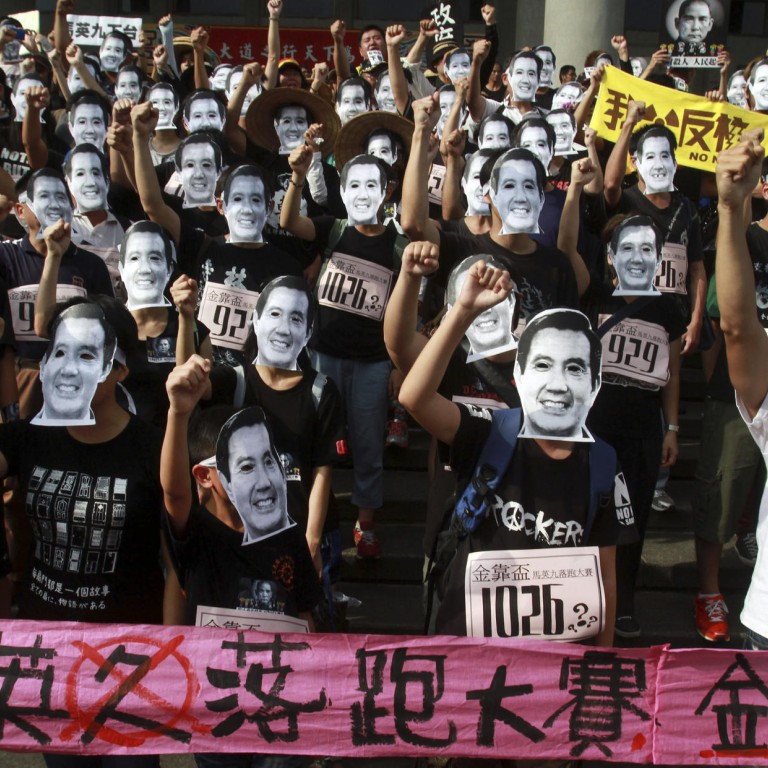
Scandal offers lessons in democracy for Taiwan
The attempt by the island's president to unseat the legislative speaker shows how easily political attacks can go awry
The political feud between Taiwanese President Ma Ying-jeou and his Kuomintang rival, legislative speaker Wang Jin-pyng, has continued to captivate the public at home and abroad, with new twists coming daily.
No doubt, neither Ma nor Wang could have foreseen the attack eventually putting the president on the defensive, and leading to a slump in his popularity. Nor could Prosecutor General Huang Shih-ming have imagined he, too, would be cast into the line of fire.
On September 6, the Special Investigation Division (SID), which is under Huang's Supreme Prosecutors' Office, presented a transcript of a wiretapped telephone conversation between Wang and Democratic Progressive Party caucus whip Ker Chien-ming.
According to an SID spokesman, Ker asked Wang to try to convince judicial officials not to seek an appeal after Ker was found not guilty of embezzling funds.
That accusation came after Huang, braving heavy typhoon rains on the night of August 31, visited Ma at his residence to brief him on the investigation into the apparent influence-peddling.
Believing he stood on the side of justice, Ma held a press conference on September 8 and lambasted Wang for trying to unduly interfere in a judicial matter.
Days later, the KMT's disciplinary committee voted to strip Wang of his party membership. In response, Wang, who denied any wrongdoing, sought a court injunction to freeze the order and temporarily keep his speaker's post. Failing twice to win an appeal against the injunction, Ma finally relented, hoping to contain the fallout amid growing public resentment towards him and his government.
Events have not gone as Ma no doubt hoped. The initial allegations of illegal lobbying spiralled into a scandal over the wiretapping, with Huang being accused of directing government investigators to illegally record the legislature.
Worse, Ma has found himself tied to the furore over whether details on the alleged influence-peddling investigation were improperly disclosed.
Under Taiwanese law, divulging details of an ongoing investigation is an offence punishable by up to three years in jail.
The investigation ended on September 5 - five days after Huang took the transcript to the president.
The "September political fight" - as Taiwanese media took to calling it - is a vivid reminder that vendettas can easily backfire.
Opinion polls held late last month found that Ma's popularity has sunk to a historic low of 9 per cent amid the controversy.
KMT legislators and party elders told Ma to drop the attack in order to repair party rifts and quell public anger. Some fear the row has damaged the ruling party's chances in next year's municipal elections, as well as the presidential poll in 2016.
Huang on Monday apologised for what he said was the SID's negligence in mistakenly wiretapping the legislature's switchboard.
While the government sternly refutes media speculation that the president was driven to remove Wang as speaker due to his reluctance to help pass a trade pact relating to cross-strait services, and other bills the Ma administration wanted, the affair can also be viewed as a lesson in democracy.
When the dust finally settles, Taiwanese people - from leaders like Ma to regular citizens - will have a better perspective with which to judge illegal lobbying or wiretapping.
Most opinion polls show the public largely believes influence-peddling is wrong, but they also think transgressions should be dealt with according to the law, and should never be justification for illegal wiretapping. Only through observing the law can democracy be further strengthened.

